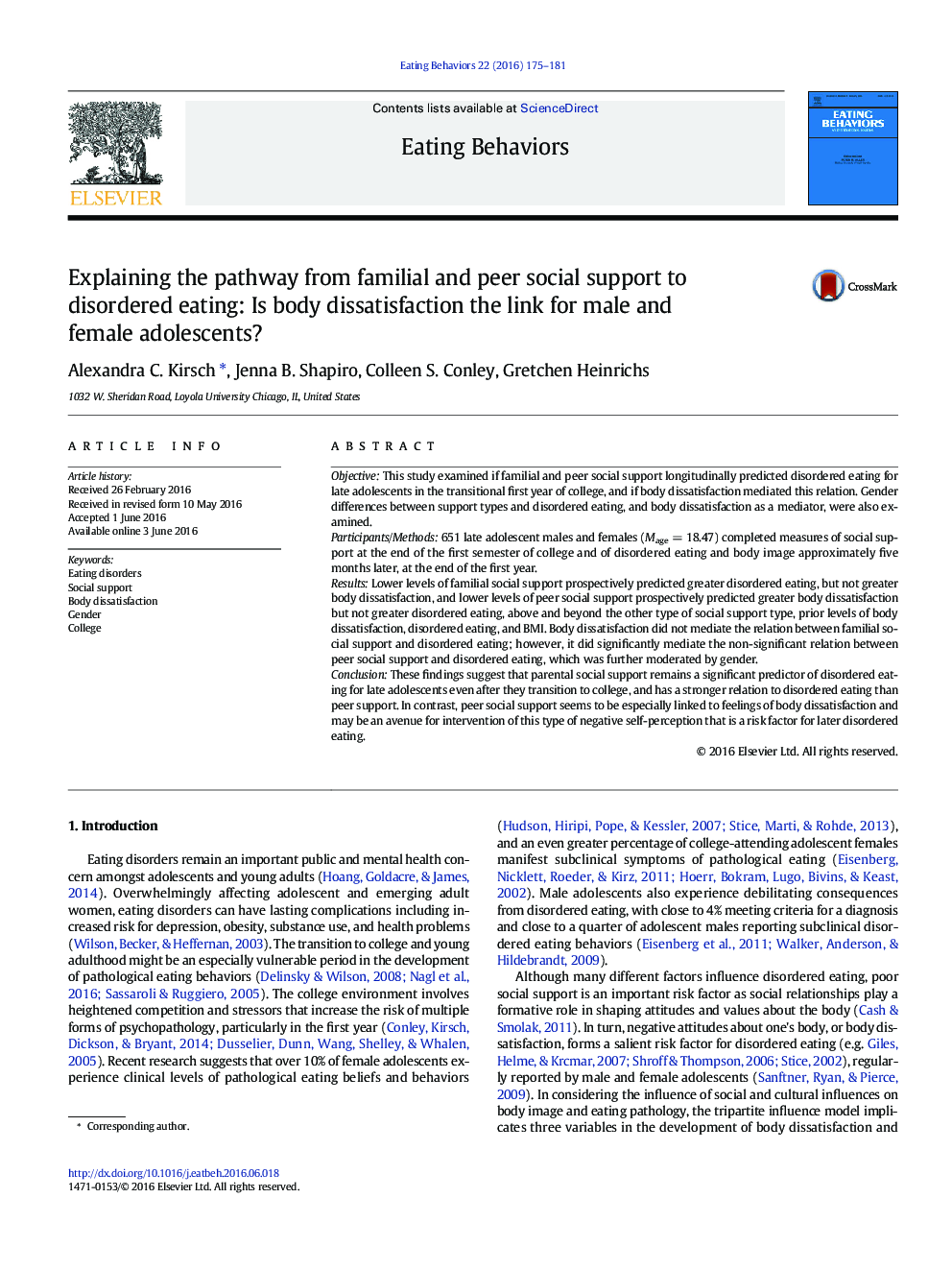| کد مقاله | کد نشریه | سال انتشار | مقاله انگلیسی | نسخه تمام متن |
|---|---|---|---|---|
| 906211 | 1472881 | 2016 | 7 صفحه PDF | دانلود رایگان |
• Lower familial social support predicted greater disordered eating but not body dissatisfaction
• Lower peer social support predicted greater body dissatisfaction but not disordered eating
• Body dissatisfaction did not mediate the relation between familial support and disordered eating.
• Body dissatisfaction mediated the relation between peer support and disordered eating.
• Gender further moderated the relation between peer support and disordered eating.
ObjectiveThis study examined if familial and peer social support longitudinally predicted disordered eating for late adolescents in the transitional first year of college, and if body dissatisfaction mediated this relation. Gender differences between support types and disordered eating, and body dissatisfaction as a mediator, were also examined.Participants/Methods651 late adolescent males and females (Mage = 18.47) completed measures of social support at the end of the first semester of college and of disordered eating and body image approximately five months later, at the end of the first year.ResultsLower levels of familial social support prospectively predicted greater disordered eating, but not greater body dissatisfaction, and lower levels of peer social support prospectively predicted greater body dissatisfaction but not greater disordered eating, above and beyond the other type of social support type, prior levels of body dissatisfaction, disordered eating, and BMI. Body dissatisfaction did not mediate the relation between familial social support and disordered eating; however, it did significantly mediate the non-significant relation between peer social support and disordered eating, which was further moderated by gender.ConclusionThese findings suggest that parental social support remains a significant predictor of disordered eating for late adolescents even after they transition to college, and has a stronger relation to disordered eating than peer support. In contrast, peer social support seems to be especially linked to feelings of body dissatisfaction and may be an avenue for intervention of this type of negative self-perception that is a risk factor for later disordered eating.
Journal: Eating Behaviors - Volume 22, August 2016, Pages 175–181
